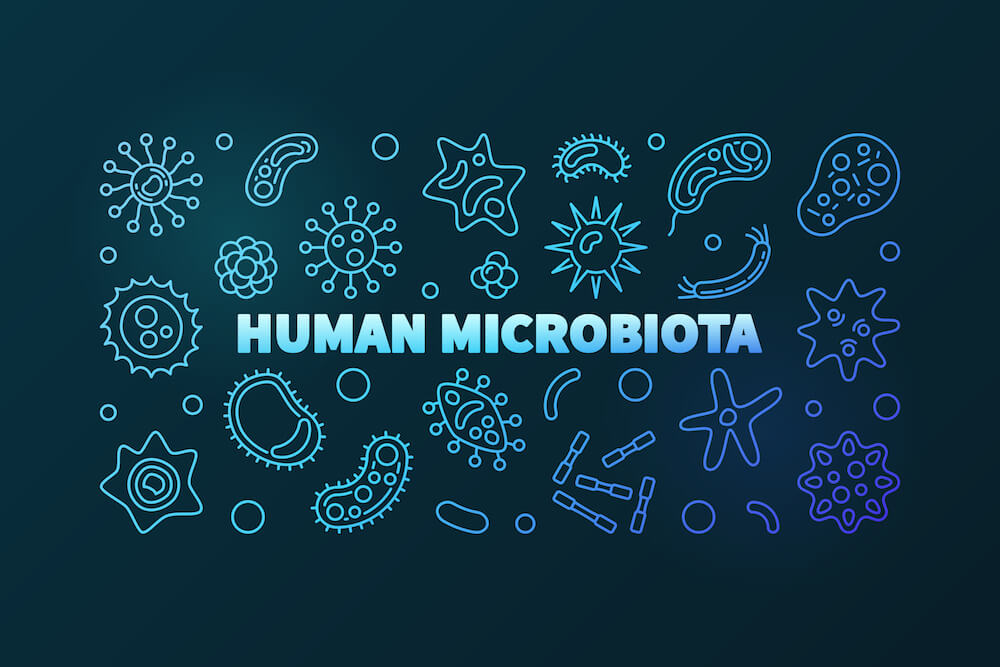Do you know your intestines contain tens of trillions of micro-organisms? This collection of micro-organisms (largely bacteria) make up what we called “gut microbiota”. Each of us has a unique gut microbiota, just like our fingerprints.
Why is gut microbiota important?
Our gut microbiota regulates our digestive health, immunity, metabolism and mental health. Maintaining a diversity of bacteria in our intestines helps us fight diseases and stay healthy.
How is our gut microbiota formed?
Gut microbiota is formed at birth. Micro-organisms are transferred from mothers to their newborn babies at birth and through breastfeeding. However, gut microbiota changes over time with age, and its composition is greatly influenced by diet, living environment, sleeping habits, physical activity and lifestyle. Antibiotics, for instance, can wipe out both good and bad bacteria in your gut.
So what should we eat to maintain a healthy and balanced gut microbiota? You may have heard of probiotics and prebiotics, but how much do you know about them?

Probiotics
Probiotics are good micro-organisms that have been proven to have health benefits when taken in sufficient amount as they keep our intestines healthy by balancing the good and bad bacteria. Probiotics can be found in some foods, drinks and supplements.
Fermented foods such as yogurt, cultured milk drink, kefir (fermented milk drink), fresh sauerkraut and natto contain live probiotics, should be included as part of a healthy diet. Many of the commercial pickles, olives and kimchi do not contain probiotics as they may not be fermented at all, but are rather placed into salt and acid solutions. Fermented foods such as tempeh and traditional sourdough bread can also be included in your diet even though they do not contain any live micro-organisms after undergoing heat processing methods such as baking and pasteurisation. These foods are beneficial for our health as they contain prebiotics and antioxidants.
However, probiotics may not be suitable for certain groups of population. Infants, pregnant women and those with a weakened immune system or major illness should discuss with their doctors before taking probiotic supplements.
Prebiotics
Prebiotics are food for good bacteria, which helps them to multiply in our intestines. Generally speaking, prebiotics are fibre-containing foods that are present naturally in many foods such as vegetables, fruits, legumes, wheat and rye products. Allium vegetables (namely garlic, onion and leeks), asparagus, Jerusalem artichokes (a kind of root vegetables), bananas, whole grains (e.g. barley and oats) are examples of foods containing prebiotics.
There is an increasing trend of the addition of prebiotics into food products and dietary supplements. Some processed foods may be fortified with prebiotics such as inulin, chicory fibre, oligofructose and fructooligosaccharides (FOS). They may contain prebiotics but some of these products can be high in sugar and salt as well, so it is still better to get your prebiotics from your fresh fruits, vegetables and whole grains.
Should I have probiotics with prebiotics?
Prebiotic and probiotic foods work hand-in-hand to build a healthy gut microbiome, and can be consumed together or separate. You can reap more health benefits if you pair them together, e.g. yogurt and oats.
Continue reading 7 Easy Tips to Better Dietary Habits.
References:
- Rezac, S., Kok, C. R., Heermann, M., & Hutkins, R. (2018). Fermented Foods as a Dietary Source of Live Organisms. Frontiers in Microbiology,9. https://doi.org/10.3389/fmicb.2018.01785
- Thursby, E., & Juge, N. (2017). Introduction to the human gut microbiota. Biochemical Journal, 474(11), 1823–1836. https://doi.org/10.1042/BCJ20160510
- Valdes, A. M., Walter, J., Segal, E., & Spector, T. D. (2018). Role of the gut microbiota in nutrition and health. BMJ, 361, k2179. https://doi.org/10.1136/bmj.k2179
At Jaga-Me, we believe that healthcare should be a social good – it is a basic human need, and should be available to as many people as possible. We aim to deliver the highest quality care through innovation and a commitment to building meaningful relationships.
Save travelling and long wait times at the hospitals. Get specialised medical treatments:
– Urinary Catheterisation
– Complex Wound Care
– Nasogastric (NG) Feeding Tube
– IV Infusion Therapy
Jaga-Me: Your Trusted Medical Home Care Professional





